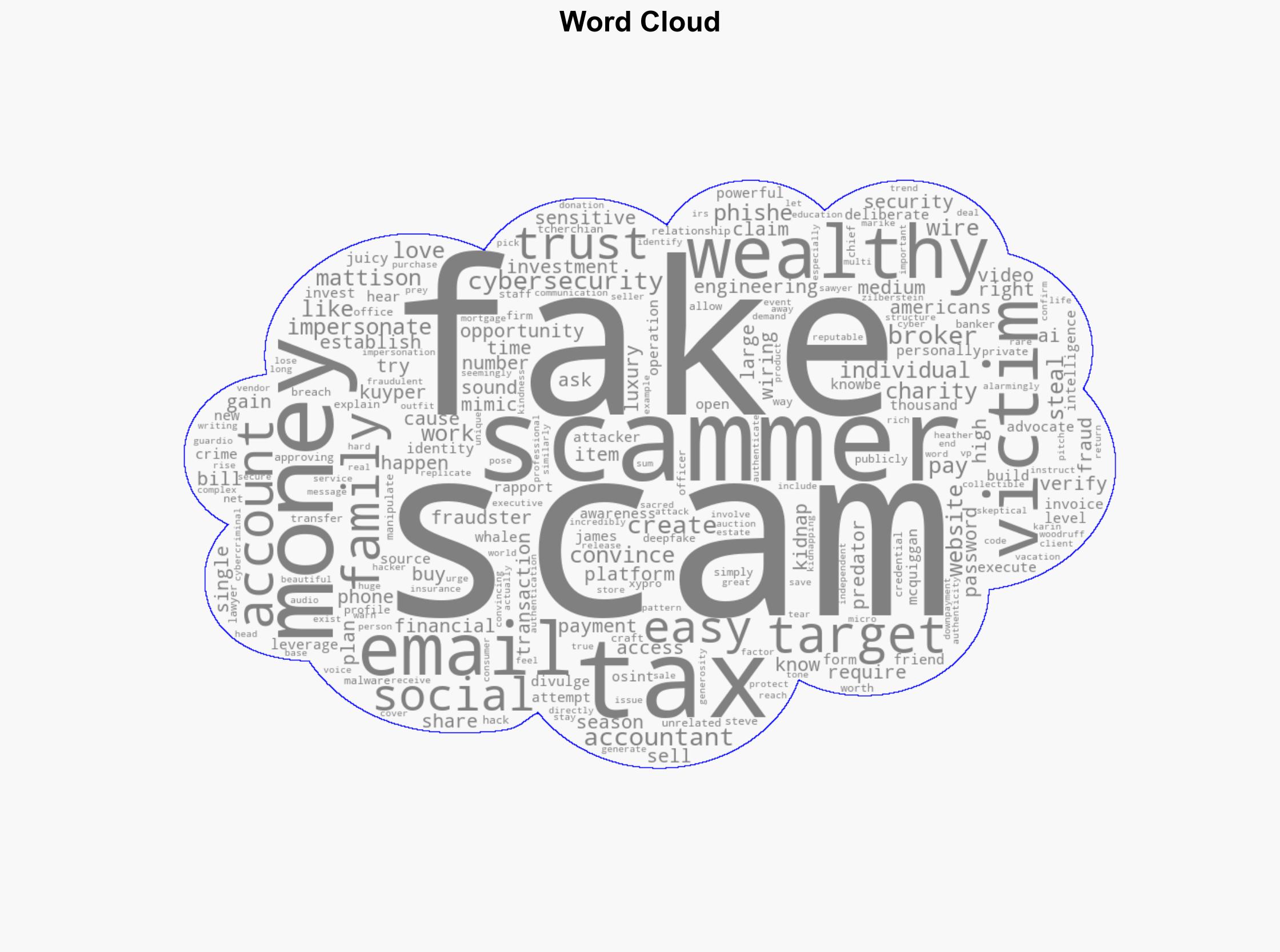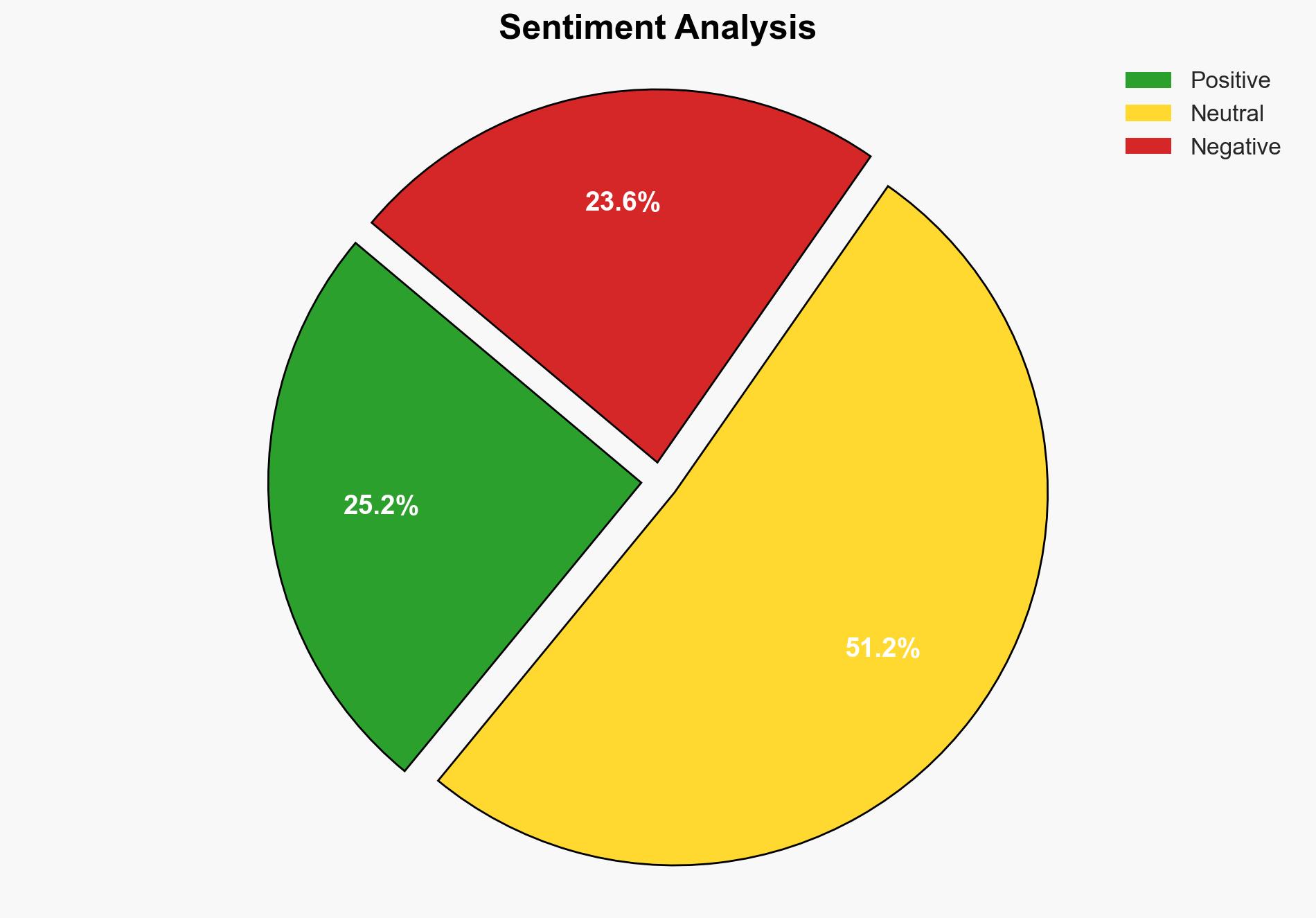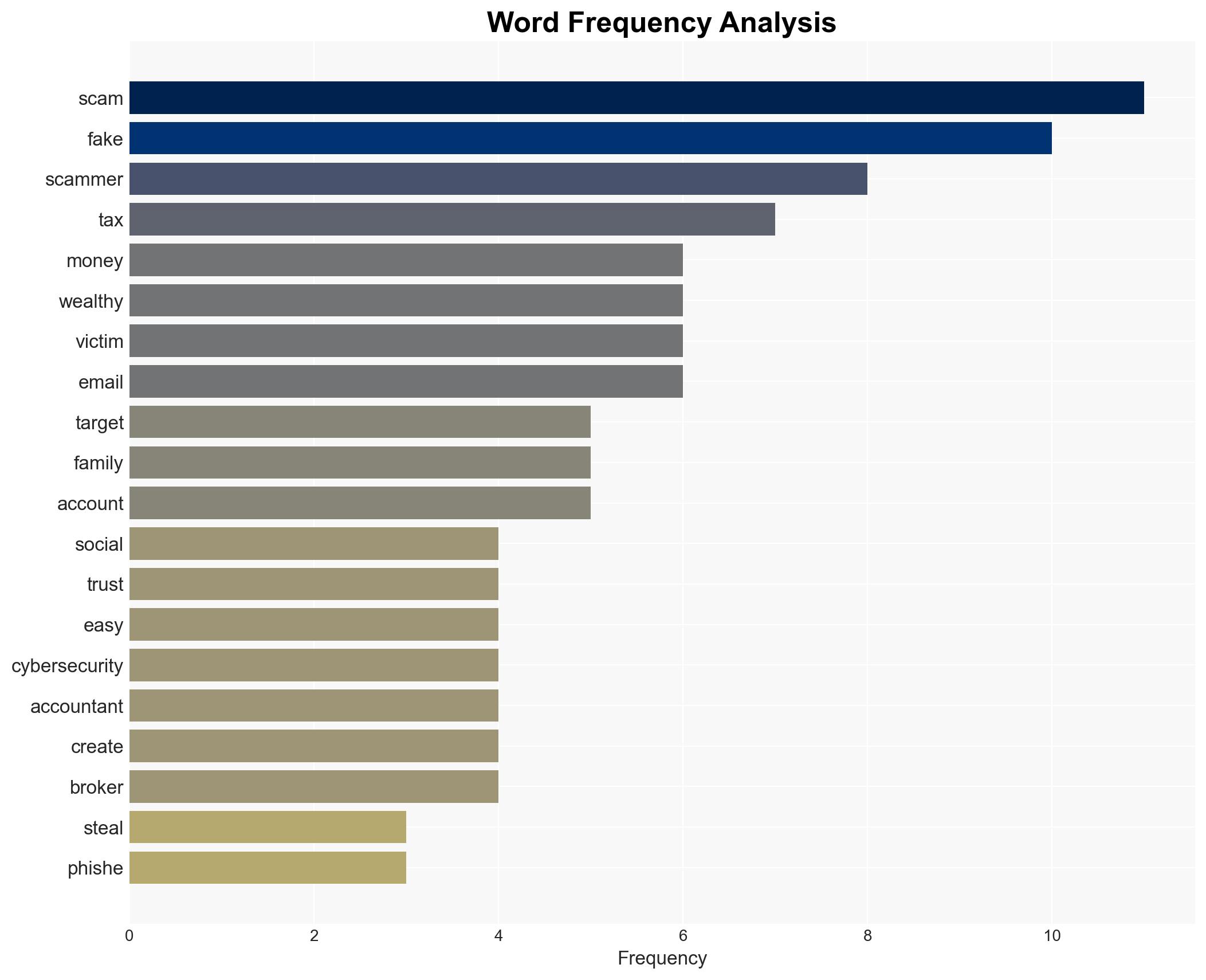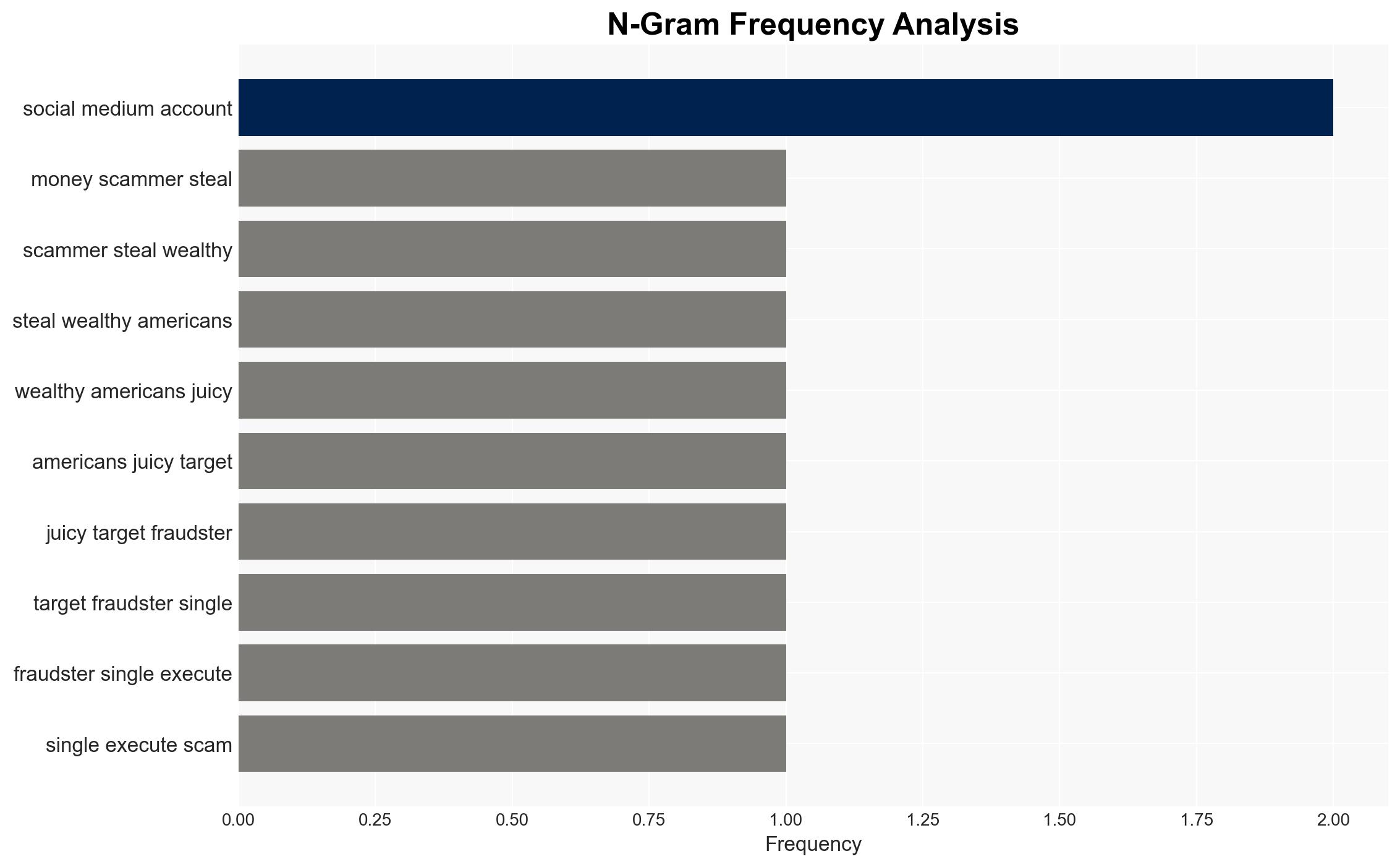7 Top Scams Targeting Wealthy Americans – Yahoo Entertainment
Published on: 2025-03-30
Intelligence Report: 7 Top Scams Targeting Wealthy Americans – Yahoo Entertainment
1. BLUF (Bottom Line Up Front)
The report identifies seven prevalent scams targeting wealthy Americans, exploiting their financial status and social connections. Key findings indicate that these scams utilize advanced social engineering techniques, impersonation, and digital manipulation to deceive victims. Recommendations include enhancing cybersecurity measures and increasing awareness among potential targets.
2. Detailed Analysis
The following structured analytic techniques have been applied for this analysis:
General Analysis
Scammers are increasingly targeting wealthy individuals through sophisticated methods such as phishing, impersonation, and fake investment opportunities. These scams often involve the use of open-source intelligence (OSINT) to gather information about the target’s social and professional networks. By building rapport and leveraging trust, scammers can gain access to sensitive information or convince victims to transfer funds.
Notable scams include impersonating trusted figures like private bankers or family office staff, using deepfake technology to manipulate communications, and creating fraudulent websites for luxury goods or charitable causes. The rise of AI has made it alarmingly easy for scammers to mimic communication styles and create convincing fake audio or video messages.
3. Implications and Strategic Risks
The increasing sophistication of scams targeting wealthy individuals poses significant risks to personal financial security and broader economic stability. These scams can result in substantial financial losses and damage to reputations. The use of AI and deepfake technology in scams represents a growing threat that could extend to national security if not adequately addressed.
The trend of targeting high-net-worth individuals may also lead to increased scrutiny and regulatory pressure on financial institutions and cybersecurity firms to enhance protective measures.
4. Recommendations and Outlook
Recommendations:
- Encourage the adoption of multi-factor authentication and complex, unique passwords for all accounts, particularly financial and social media accounts.
- Promote awareness campaigns to educate potential targets on recognizing and responding to scam attempts.
- Advocate for the development and implementation of advanced AI detection tools to identify and mitigate deepfake and impersonation scams.
- Encourage collaboration between cybersecurity firms and financial institutions to share intelligence and develop comprehensive security protocols.
Outlook:
In the best-case scenario, increased awareness and improved cybersecurity measures will reduce the success rate of scams targeting wealthy individuals. In the worst-case scenario, the continued evolution of AI and digital manipulation techniques could lead to more sophisticated and harder-to-detect scams. The most likely outcome is a gradual improvement in defensive measures, with ongoing challenges as scammers adapt to new technologies.
5. Key Individuals and Entities
The report mentions several individuals who have provided insights into the nature of these scams:
- James McQuiggan – Highlighted the use of OSINT and social engineering in scams.
- Steve Tcherchian – Explained the role of impersonation and digital manipulation.
- Karin Zilberstein – Warned about the rise of AI in investment scams.
- Marike Kuyper – Discussed tax scams and the importance of verifying seller authenticity.
- Heather Mattison – Emphasized the need for robust authentication measures.




